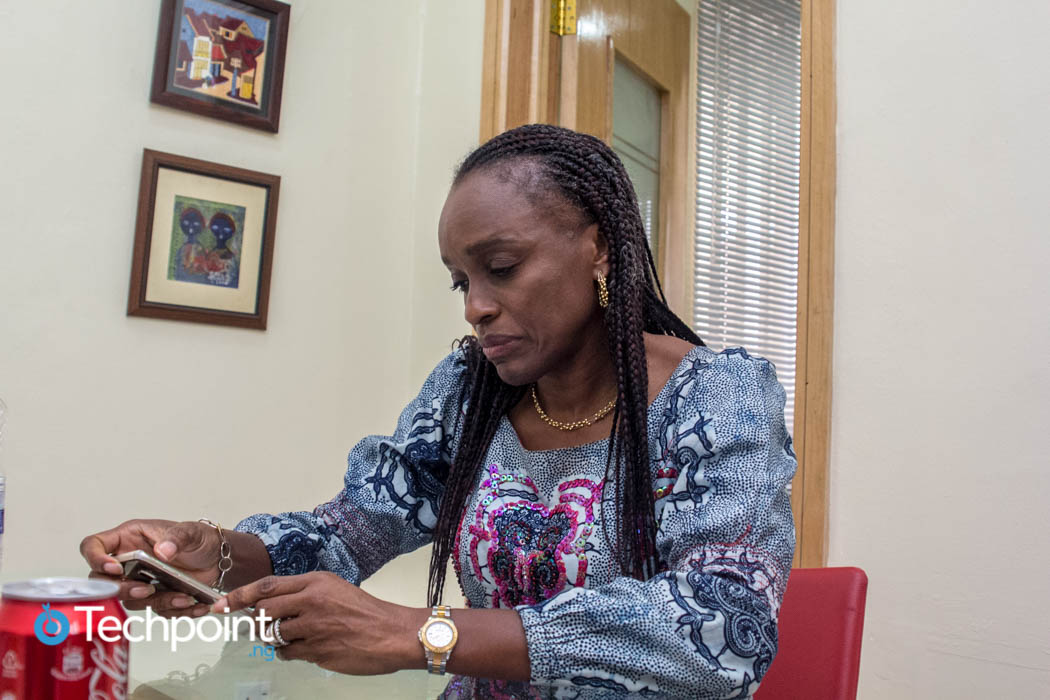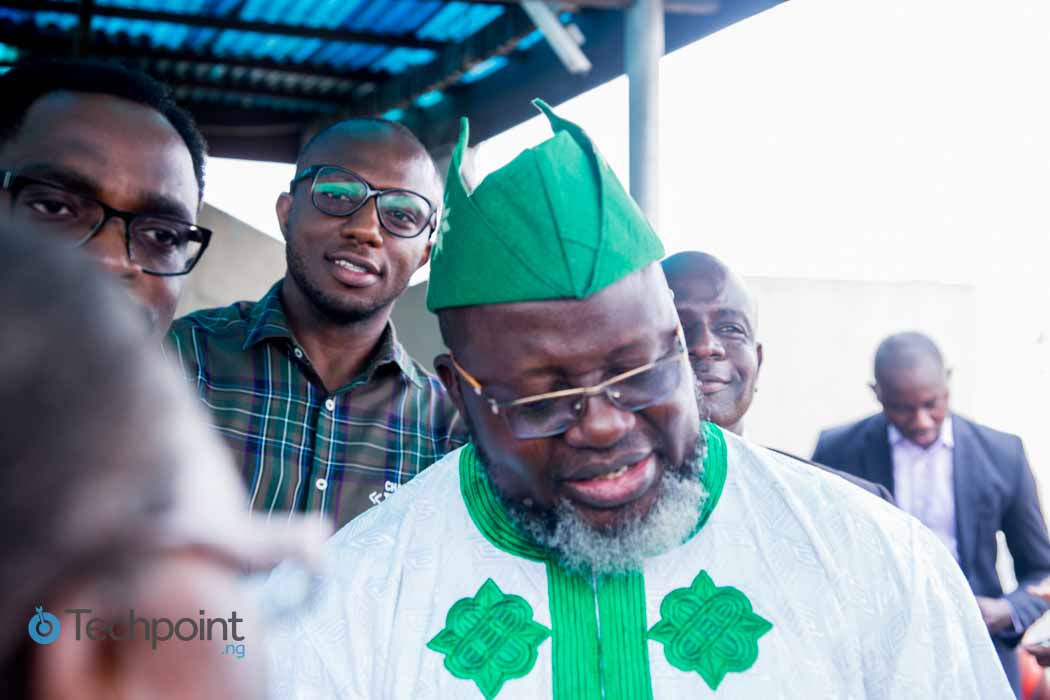Aside cost, increasing access to the Internet is a function of the spread of broadband infrastructure. However, some factors — most of which are not within the control of service providers — greatly affect the affordability of Internet access.
The telecommunications industry is one that is characterised by significant upfront investment in spectrum licenses, equipment purchases, and network infrastructure roll-out among others. But at the very top of the list is bureaucracy.
Speaking recently at the 2018 US-Nigeria Investment Summit in Washington DC, the Emir of Kano and former governor of the Central Bank of Nigeria, Muhammadu Sanusi II stated that the high cost of Internet in Nigeria is attributable to bureaucracy and taxation.
In the same view, the President of the Association of Licensed Telecoms Operators of Nigeria (ALTON), Gbenga Adebayo, speaking at a recent Stakeholders’ Forum, claimed that the body has lost 20 of its 36 active members over the past few years.
According to Adebayo, multiple taxation is a major reason for the reduction in the number of members. Others include the economic challenges, competition, vandalism, and theft.
The Inclusive Internet Index of the Economist Intelligence Unit (EIU) recently ranked Nigeria as the country with the most affordable Internet in Africa. However, when price is compared with minimum wage, the ratio for the cost of 1GB of Internet data in Nigeria is higher than some other African countries.
Based on the timeline of the Nigerian National Broadband Plan 2013-2018, 3G connectivity is supposed to have spread to not less than 80% of the population by the end of 2018.
But the Nigerian Communications Commission (NCC) is playing on both the defence and offence — threatening to revoke licenses while also highlighting the reasons Infrastructure Companies (InfraCos) are not building telecom infrastructure.
This will in no way help the achievement of the activities spelt out in the broadband plan.
The path of bureaucracy
That bureaucracy is responsible for the high cost of Internet is not far from the truth. It has been estimated that InfraCos will have to pay a combined ₦600 billion to the 36 state governments in Nigeria as Right of Way (RoW) charges, which can often be as high as 50% of the entire cost of building infrastructure.
RoW is the legal instrument that gives permission to lay fibre-optic cables along specific routes through facilities that are typically government-owned like roads, water, power lines, etc.
State governments request for as high as ₦25,000 as against a recommended charge of ₦145 per metre of fibre for RoW. This exuberant cost, among other expenses, is then transferred along the value chain which drives up the price to the end-users.
According to MainOne Connectivity Product Manager, Olugbenga Akano, the success of the MainOne cable in Yaba is attributable to the cooperation of the then state government under the administration of Babatunde Fashola.
This has made Yaba a hub for Internet companies in Lagos, and Nigeria by extension.
“MainOne has been ready for over 4 years to roll out service to other parts of Lagos only if the state government gives the green light,” he says.
Apparently, the present administration is not giving the same level of cooperation to MainOne to serve other parts of the state.
According to Akano, InfraCos sometimes get licenses to build infrastructure from the federal government but still need approval from state governments to actually proceed with building the infrastructure.
Giving free RoW to build infrastructure will definitely go a long way to boost penetration while also reducing the cost to the end users.
Infrastructural bottlenecks

“In Nigeria, the cost of RoW is high, and there is no harmonisation of RoW fees and processes across agencies at different tiers of government,” Media Relations Director, GSMA, Claire Cranton says. According to her, there are also long delays in the processing of the permits which contribute to the affordability and availability of access to Internet services.
Despite having 5 companies bringing submarine cables into the country, there’s still a prevailing lack of infrastructure penetration. InfraCos and telcos have to acquire real estate for their constructions while also battling with high RoW charges. And furthermore, significant operational expenditure goes into ensuring the sites remain up and running.
Akano also laments about the lack of infrastructure sharing among InfraCos and telecom operators in Lagos.
“Let’s take Awolowo Road, Ikoyi for instance, all the telcos have their individual infrastructure in place. Meanwhile one cable laid can serve everybody but because they want to own the infrastructure and be in control, everybody builds.”
In Nigeria, having a higher spread of infrastructure is about how deep a company’s pocket is. Infrastructure sharing has the potential of broadening broadband penetration, and it also makes it easier for new entrants into the market.
Regulation and policy
Despite their importance and potential contribution to the nation’s economy, telecommunications-related equipment are not on the CBN’s list of items that are valid for foreign exchange (PDF). This means InfraCos and telcos have to get foreign currencies at higher rates from the parallel market.
Policies and regulations within the sector don’t really address how to make access affordable while also limiting the impact of the factors that are driving up the price of Internet.
We can agree that there’s the need for a strong regulation that would enhance the collaboration among players which is still lacking. And enforcement of the existing policies and regulations is key.
There’s also the need for regulations that facilitate the cost-effective use of infrastructure and resources by service providers like permission to share active elements of network infrastructure among others.
Multiple Taxation
Multiple taxation and unfavourable conditions for the industry in terms of access to foreign exchange only serve to exacerbate the high cost of delivering Internet services and, by implication, the cost of access to Internet services.
GSMA Media Relations Manager, Claire Cranton reveals that a research by the organisation in 2015 showed that there are 26 different taxes and fees levied on mobile operators as well as consumers in Nigeria which include 12 taxes that are specific to the telecommunications sector.

It’s noteworthy that the former Minister of Communications Technology, Omobola Johnson, stated that 70% of investments by the telcos go to various tiers of government as taxes and levies.
Moving forward
The government at all levels needs to reconsider the importance of the ICT sector, especially since increasing broadband access is a key component of the nation’s economic growth. And also considering the fact that a 10% increase in fixed broadband penetration amounts to 1.38% increase in Gross Domestic Product (GDP) growth of developing economies.
Speaking recently at the launch of Airtel 4G LTE network in Abuja, the Communications Minister, Adebayo Shittu, urged telecom operators to ensure an inclusive network coverage across the nation.

But it’s not enough to talk about the benefits of broadband penetration. The government needs to reevaluate its activities that are hindering the performance of the telecom operators as well as InfraCos. This will ensure that these companies not only fully cover the nation, but that Internet services are provided at a much lower cost which will, in turn, drive penetration and its effect on the economy.
Moving forward, Olugbenga Akano, MainOne Connectivity Product Manager calls for the need to initiate a smart city initiative with state governments in which cost of RoW is subsidised.
Government at all levels needs to reconsider industry-specific taxation while also minimising complexity and uncertainty of taxes and fees in the sector.
Subsequent broadband policies should put emphasis on affordability of broadband access rather than just the spread or penetration since the price has a role to play in its adoption.
According to GSMA, the consideration for assigning new spectra should be about the long-term socio-economic impact as opposed to the short-term gains of high upfront fees for the spectrum.
The NCC needs to work with the CBN to have telecommunications equipment included on the list of items valid for foreign exchange. This will allow telcos and InfraCos access foreign currency at favourable rates.
All these would not only drive the spread of infrastructure, Internet penetration would also deepen.










